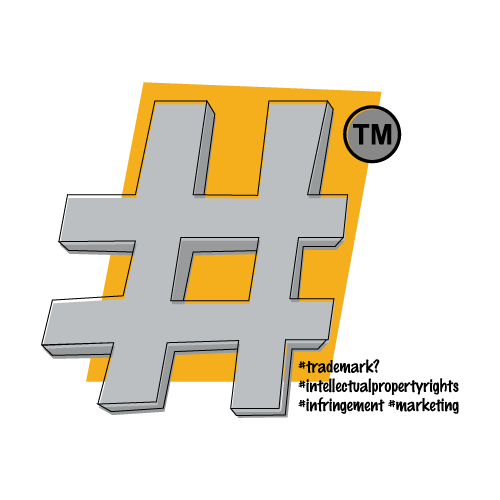Hashtag Trademark

Introduction
Today, social media is a crucial marketing platform for the majority of enterprises. Online marketing solutions are continuously being developed by social media platforms to assist businesses in reaching their current and potential clients. One of the most cutting-edge marketing techniques on all social media platforms is the hashtag!
On social media platforms, hashtags are words or phrases that are prefixed with the hash symbol (“#”). These hashtags, such as #koffewithkaran, #mcdstories, and #oreohorrorstories, must have truly caught ones attention. By adding a unique label, hashtags aid in identifying information on a particular topic, as implied by the word “tag” usage. The primary goal of utilising a hashtag in some content is to increase the number of people who see it. Another goal is to develop and contribute to a common platform for a particular subject so that users may use the tags on the material to search for content that is linked to a particular subject.
The importance of hashtags as a marketing strategy is demonstrated by their effectiveness in advancing a number of global activism initiatives, including the #MeToo movement, #BlackLivesMatter, #Justiceforanitha, and others. Businesses jumped at the chance to make use of hashtags as soon as their potential became clear.
Why should a hashtag be registered as trademark?
A registered hashtag trademark is still very important in today’s extremely competitive industry, even though doing so does not prevent others from using the hashtag. This is however subject to any challenge for passing off or infringement, by the registered proprietor. In the event that another firm utilises one of the business’s trademarked hashtags to promote a rival good or service in the same sector, seeking trademark registration gives the business the upper hand. Additionally, some hashtags become so well-liked that they enter popular culture; if such a hashtag is a registered trademark, rival businesses can easily be restrained from using it to distinguish their products on items like mugs, t-shirts, posters, etc.
Legal Status of registering a trademark
A hashtag must meet two requirements in order to be recognised as a trademark under the Indian Trademark Act, 1999: (a) It must be able to be represented graphically, and (b) It must be able to differentiate the goods and services of one person from those of another. All hashtags satisfy the first requirement because they can be represented graphically and are essentially words or numbers. Thus, the second criterion is what is crucial. The applicant must be sure that the hashtag is distinctive by nature or has become distinctive through time in order to satisfy this requirement. Simply said, distinctiveness means that clients should only be able to connect the hashtag to the applicant’s offerings and not to any other goods or services. This suggests that a hashtag that uses a common word won’t be valued as distinctive.
Conclusion
Law in this field is still developing. Although there is currently no agreement among the courts on how to handle the hashtag issue, it is important to note that when analysing trademark infringement, the courts would typically take into account whether the defendants’ use is likely to lead to consumer confusion.
Generally speaking, a hashtag use could be considered trademark infringement if it implies sponsorship, association, or endorsement by the trademark owner, leading to a possibility of confusion. However, if the use just serves to advertise the user’s own products or services, such as by insinuating that their goods or services are compatible with others’ or come from the same source, it may be considered fair use and authorised.

